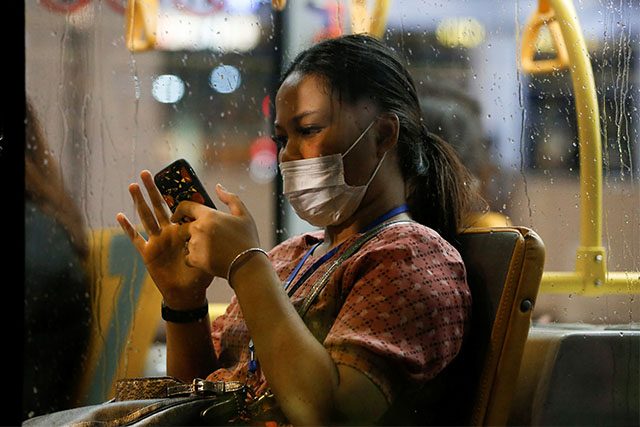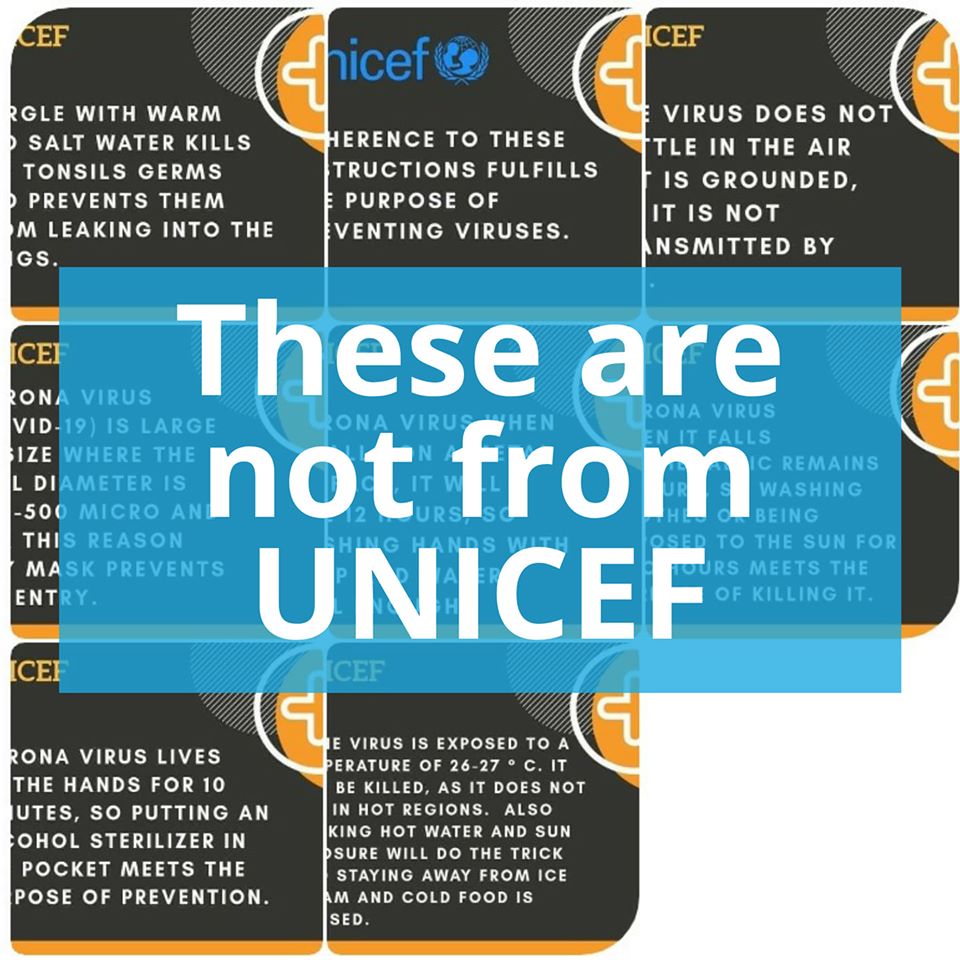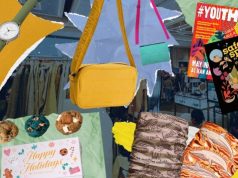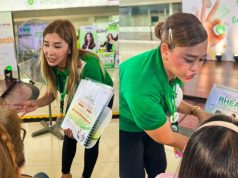
The Philippine branch of the United Nations Children’s Fund issued an advisory against viral posts using its name which featured supposed facts on COVID-19 that the organization tagged as a form of “misinformation.”
Charlotte Petri Gornitzka, the UNICEF deputy executive director for partnerships, warned that it is “dangerous” and “wrong” to share what she called “inaccurate” information on social media and misappropriate the names of organizations.
“A recent erroneous online message circulating in several languages around the world and purporting to be a UNICEF communication appears to indicate, among other things, that avoiding ice cream and other cold foods can help prevent the onset of the disease. This is, of course, wholly untrue,” she said.
The verified social media accounts of UNICEF Philippines shared screengrabs of some of the viral posts from chat applications that used the organization’s name and clarified it only releases information on its verified pages.
“Always be mindful and check first with official UNICEF, WHO (World Health Organization) and DOH (Department of Health) channels before sharing posts,” UNICEF Philippines said.

The organization urged the public to only check official websites when it comes to sharing information about the novel coronavirus.
It specifically gave the links of its article titled “Coronavirus disease (COVID-19): What parents should know” and the World Health Organization’s webpage dedicated to updates and information about the pathogen.
“Stay safe and informed, everyone,” UNICEF Philippines said as it shared the links.
In the comments section of the post, some Filipinos speculated that the advisories must have been issued following reports that the organization purportedly told the public sun exposure can “kill” the virus, among others.
A Facebook user attached a link from MSN’s website which had the title, “Coronavirus update: Sun exposure can keep you safe, says Unicef.”
As of publication, however, the webpage now indicates that it might have been removed or taken down already with a message that says “Page not found.”
Claims
An independent fact-checking website listed down all of the claims that UNICEF purportedly made and clarified that it was a “mix of truths and half-truths.”
One of the cards claimed that “any” type of mask can be used to protect oneself from the virus since it is “large in size.”
Africa Check, the fact-checking website, listed it as “unproven” and said that it is not yet “scientifically proven” whether COVID-19 is actually large in its structure or not.
It added that using a face mask is “not necessary for healthy individuals.” Instead, it helps decrease the risk of an infected individual transmitting the virus to a non-infected individual.
The website also said that while the claim of the virus being grounded or not of airborne nature is “mostly correct,” it clarified that the virus can only be spread through droplets so keeping a distance from those with respiratory infections is the proper practice.
The fact-checking organization also rated the now-viral claim about sun exposure as “incorrect.”
One of the posts claimed that people should drink hot water and let themselves be exposed to the sun as form of preventive measure.
It also purported that they should stay away from ice cream and cold foods.
“We found no evidence that drinking hot water, being exposed to the sun or ‘staying away from ice cream’ could prevent infection,” Africa Check said.
A professor from the London School of Hygiene and Tropical Medicine said that while drinking water frequently is good medical advice, there is “absolutely no evidence” of it being effective.
The same goes for exposing yourself to the sun or in high temperatures.
“To actively kill the virus, you need temperatures of around 60 degrees,” Professor Sally Bloomfield said.
She said that there is no way the virus can be killed once it penetrates the body but it could be fought off.
A full list of the claims and its factual counterpart is available on Africa Check’s website.









